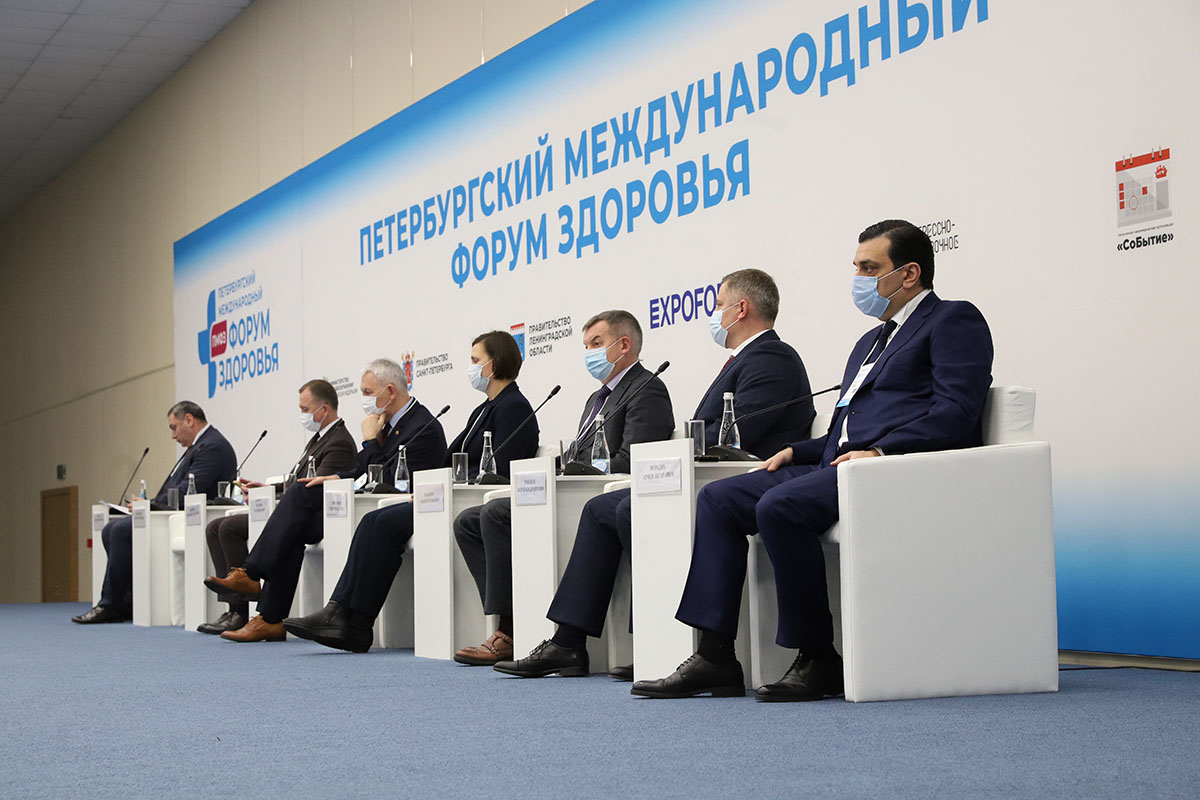St. Petersburg International Health Forum discussed the megapolis life under pandemic conditions
The experience of the megapolis life in the pandemic was discussed on October 20 by the participants of St. Petersburg International Health Forum at the ExpoForum Convention and Exhibition Centre. The organizer of the conference – St. Petersburg Public Health Committee – invited for participation the heads of clinics, representatives of outpatient medical institutions, Rospotrebnadzor, research institutes involved in the development of medications for COVID-19 prevention and treatment.
Employees of Rospotrebnadzor were the first to stand in the way of a new coronavirus infection in St. Petersburg, recalled the head of the epidemiological supervision department of the regional department Irina Chhingeriya. She reported that already in December 2019 heat monitoring was organized of all those people arriving in the Northern capital from abroad: at Pulkovo Airport and the sea passenger port. “Over the past period, more than a million and a half passengers were inspected,” she recalled. “Then the department was engaged in arrangement of observatories, regulations, and work algorithms for doctors, re-profiling of hospitals, creation of consulting centers and laboratories.” Irina Chhingeriya added that over 13 million PCR tests have already been performed in St. Petersburg, and this is one of the highest rates in the country.
Head of Interdepartmental Medical Working Group at the Interdepartmental City Coordinating Council on Combating the Spread of New Coronavirus Infection in St. Petersburg (COVID-19) Academician Evgeny Shlyakhto pointed out the main challenges faced by the healthcare system. Among them there is a hyperspecialization of doctors. “The pandemic has shown the need to revise medical education standards. All doctors should have competencies such as resuscitation or functional diagnostics,” he said, adding that St. Petersburg is one of the leaders in developing remote counseling and telemedicine centers, which are “critically important” in the fight against infection.
Dmitry Lisovets, head of the St. Petersburg Public Health Committee, emphasized project management in a pandemic. This includes the use of the city emergency service 112, the Vaccination information system, which allows health workers to quickly send data about vaccinations of citizens to the state registration system, as well as the portal of electronic services of the city health care system. “More than 400 thousand citizens signed up for vaccination against sars-cov-2 through the service Health of a St. Petersburger. It is also used to sign up for free in-depth medical examinations for those who have already had a Covid,” he said. Lisovets added that earlier this year, by August, the authorities had set a goal to vaccinate 1 million 200 thousand citizens against it. But now the plans will have to be seriously adjusted upward, since the federal level has set the goal of vaccinating 80% of the country’s population to achieve collective immunity.
Representatives of the Influenza Research Institute reported that the so-called "delta strain" sars-cov-2 has now virtually superseded all others and continues to dominate. But the institute is finalizing its own vaccine against COVID-19. "The vaccine is intranasal, its big advantage would be jet injection. It is being developed based on an attenuated influenza vector. Although initially, of course, the drug is being developed as a COVID-19 vaccine, we hope that in the future it will be a combined flu and COVID-19 vaccine. Its preclinical studies have been completed, and clinical studies will soon begin. Next year we hope to have this drug registered," said Darya Danilenko, deputy director of the Research Institute of Influenza for scientific work.
On October 20, the St. Petersburg International Health Forum opened at the ExpoForum Convention and Exhibition Centre. Its three-day program includes conferences and panel discussions for medical practitioners, heads of clinics, representatives of academic circles, government agencies, public health system, and Rospotrebnadzor on pandemic response, development of digital technologies in medicine, and the infrastructure of the industry. For all three days the Medical Industry Exhibition will work in the framework of the Forum.

 Calendar
Calendar
 Online application
Online application
 Map
Map
 How to get
How to get



